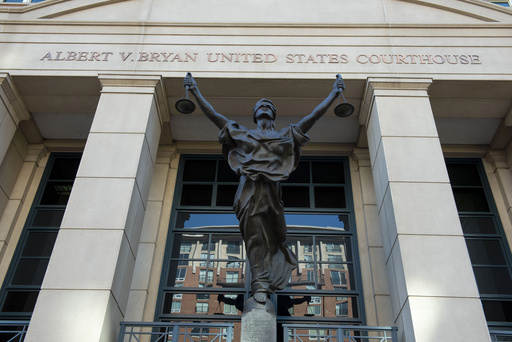
ALEXANDRIA, Va. — A former Marine Corps veteran, Russell Vane, 42, of Vienna, Virginia, was sentenced to time served on Wednesday after he pled guilty to producing ricin following connections with a Virginia militia that led to a federal inquiry. The investigation revealed that Vane had no intention of causing harm to anyone.
Vane’s arrest by the FBI in April raised significant concerns about potential threats. Initial fears depicted him as a domestic terrorist, whose alarming interest in explosives even led some members of his militia group to suspect he might be an undercover agent attempting to entrap them. The situation intensified when investigators discovered castor beans and a test tube that contained a substance confirmed to be ricin during a search of his residence. Vane had also taken peculiar actions prior to his arrest, such as attempting to legally change his name and posting a fictitious online obituary.
During the sentencing, prosecutors acknowledged that Vane was not the menacing figure they had first believed. “The defendant didn’t turn out to be a terrorist, or planning a mass casualty attack, or even plotting a murder. Rather, he exercised some terrible judgment, and synthesized a biotoxin out of — essentially — curiosity,” noted prosecutor Danya Atiyeh in documentation submitted to the court.
Vane, who was employed as an analyst with the National Geospatial-Intelligence Agency before his arrest, experienced feelings of isolation and distress during the pandemic. This emotional state, coupled with anxiety regarding global events, including the Russian invasion of Ukraine, led to an interest in militia groups. According to prosecutors, his decision to create ricin aligned with a pattern of inappropriate scientific experimentation from his past, including an incident where he demonstrated how to make explosive black powder to local children.
Vane explained to officials that the ricin was leftover from an earlier experiment he believed had not succeeded, as he was curious to discover the feasibility of creating the toxin from castor beans. Although exposure to ricin can be deadly, Vane’s defense counsel argued that the ricin he produced was too crude to serve as a viable biological weapon.
Despite determining that Vane lacked malicious intent, prosecutors still sought a prison term exceeding two years, asserting that a significant sentence was necessary as a deterrent for others. However, U.S. District Judge Anthony Trenga chose to impose a sentence of time served, which included four months in solitary confinement following his arrest. Additionally, Vane received four months of home confinement, a $5,000 fine, and was ordered to either sell or dispose of nearly a dozen firearms he owned.
Prior to his sentencing, Vane expressed remorse for his actions. “I have lived in a deep state of embarrassment, regret and sorrow for my actions,” he stated. Authorities initially became aware of Vane through discussions among members of the Virginia Kekoas militia who voiced their concerns to a local news outlet.
Vane’s attorney, Robert Moscati, mentioned that the government’s initial reaction to Vane’s interactions with the militia was understandable. Court records revealed that Vane had inquired whether members who referred to themselves as “Ice” and “Sasquatch” would be interested in creating homemade explosives. Ultimately, Vane was characterized by his attorney as “not Timothy McVeigh. He wasn’t the Unabomber. He wasn’t a domestic terrorist,” and he compared Vane’s attempt to produce ricin to “a failed 8th-grade science project.”
